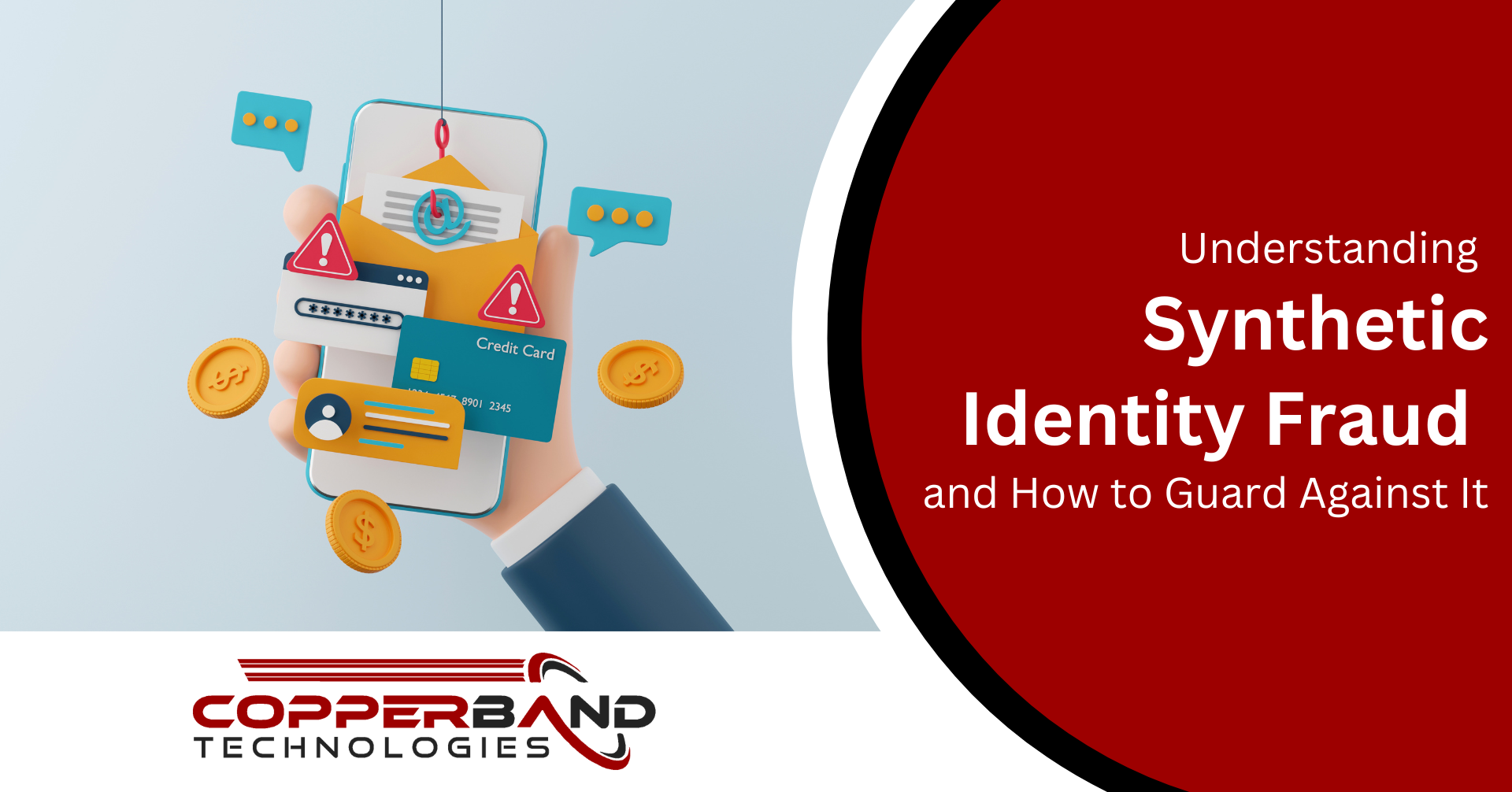Understanding Synthetic Identity Fraud and How to Guard Against It

A New Face of Identity Theft
In the evolving landscape of cyber attacks, there’s a nefarious tactic on the rise: synthetic identity fraud. Unlike traditional identity theft where one’s complete identity is stolen, this type involves creating a blend of real and fabricated information. Clarksville’s bustling digital community, like many others, needs to be aware of this threat. This article dives into the nuances of synthetic ID fraud and how you can shield yourself from it.
What Makes Synthetic Fraud Unique?
At its core, synthetic identity fraud is distinct from traditional identity theft. While classic identity theft aims at hijacking an individual’s complete profile, synthetic identity fraud seeks to craft a new, blended identity. This blend uses a combination of genuine and fabricated information, and understanding this interweaving is the first step to countering it.
1. The Fabrication Process: Cybercriminals begin by taking a piece of legitimate data, often a genuine Social Security number. They’ll then pair this with fabricated details, like a fake name or date of birth.
2. Slow and Steady Misuse: The fraudsters then engage in seemingly normal transactions. They may apply for credit or make minor purchases, paying them off to build credibility. Often, they will apply for credit with the knowledge they will be denied. Even if rejected, these applications can create a credit file, a footprint of sorts for the synthetic identity. By repeatedly engaging in ‘trustworthy’ activities, they establish this identity as credible in the eyes of financial institutions.
3. The Final Hit: Once the synthetic identity has built substantial credit or gained enough trust, the criminal strikes. This could involve maxing out credit cards, securing high-value loans, or making large purchases. After exploiting the established credit lines or trust, the cybercriminal abandons the synthetic identity. Since the identity was partially or wholly fake to begin with, it leaves lenders and financial institutions with no real individual to pursue.
Why Synthetic ID Fraud is a Growing Concern
While cyber attacks have been a persistent concern for both individuals and businesses, the growth of synthetic identity fraud offers a new challenge to the cybersecurity landscape. The nature of this fraud makes it particularly elusive and, in many cases, more damaging.
1. Elusive to Traditional Systems: Many current detection systems are tailored to pinpoint full-blown identity theft. The blend of real and counterfeit data in synthetic fraud often slips through the cracks.
2. Attractive to Modern Cybercriminals: Because of the meticulous process of building a synthetic identity, the returns are often substantial, making the effort worthwhile. Additionally, since there is no immediate victim, synthetic ID fraud poses a lesser immediate threat of being reported.
3. Exploiting the Vulnerable: The real pieces of data used to craft a synthetic ID are usually taken from people less likely to monitor their credit or identity actively, such as minors, the elderly, or even the deceased.
The Challenges in Stopping Synthetic ID Fraud
1. Delayed Reporting: Since the identity is part-real and part-fake, there’s often no immediate victim to raise an alarm. The true victim might remain unaware for a long time.
2. Advanced Technologies at Play: Sophisticated tools, some powered by AI, can generate realistic information that’s hard to distinguish from genuine data.
3. Involvement of ‘Insiders’: There have been instances where those working within financial institutions work together with criminals, making detection even harder.
Protecting Yourself from Becoming Part of a Synthetic Identity
In a digital age where personal data becomes currency, understanding how to shield oneself from falling prey to synthetic identity creators is incredibly important.
1. Monitor Your Credit Report: Establish a routine to review your credit reports every so often. Spotting unusual activity early can be a key deterrent.
2. Be Wary of Phishing Scams: Phishing attacks, aimed at getting personal data, are constantly evolving. Before sharing any personal data, especially in response to emails or phone calls, verify the authenticity of the requester.
a. Seasonal Spikes in Phishing: It’s essential to be particularly vigilant during the holiday seasons. Fraudsters are aware that online shopping and transaction activities increase around these times, making it a prime season for launching phishing attacks. Many of these scams may appear as promotional offers or fake charities, leveraging the festive spirit for malicious intent.
b. Beware of Holiday ‘Special’ Emails: Be wary of emails offering too-good-to-be-true deals, especially if they ask you to click on links or provide personal information. Always verify the source and consider reaching out to the company or organization directly through trusted methods.
3. Guard Personal Information: The more you share online, the easier it is for criminals to gather pieces of your information. Customize your privacy settings and think twice before sharing personal details.
4. Invest in Comprehensive IT Security and Services: A robust cybersecurity strategy, possibly aided by a managed service provider in Clarksville, can offer an added layer of protection.
5. Educate and Inform Your Circle: The more people that are aware of the dangers of synthetic identity fraud, the better. Focus on informing children and the elderly in particular since they are frequent targets. Ensure they understand the basics of online safety and data privacy.
The Role of Managed Service Providers in Protecting Against ID Fraud
Businesses and individuals in Clarksville can benefit from partnering with a knowledgeable managed service provider. Such providers offer advanced IT security and services tailored to the unique threats of today, including synthetic ID fraud. They can assist in setting up enhanced firewalls, offer malware and ransomware protection, and provide training on spotting and responding to phishing attempts.
Staying One Step Ahead
As cybercriminals grow more sophisticated, it’s important to remain proactive in our defense strategies. Synthetic identity fraud, with its blend of real and fake data, represents a significant challenge. Yet, with awareness, caution, and the right protective measures, we can ensure our personal and financial information remains secure.
For Clarksville businesses eager to fortify their defenses, Copperband Technologies is here to assist. Reach out to us and let’s work together to safeguard your digital future!






